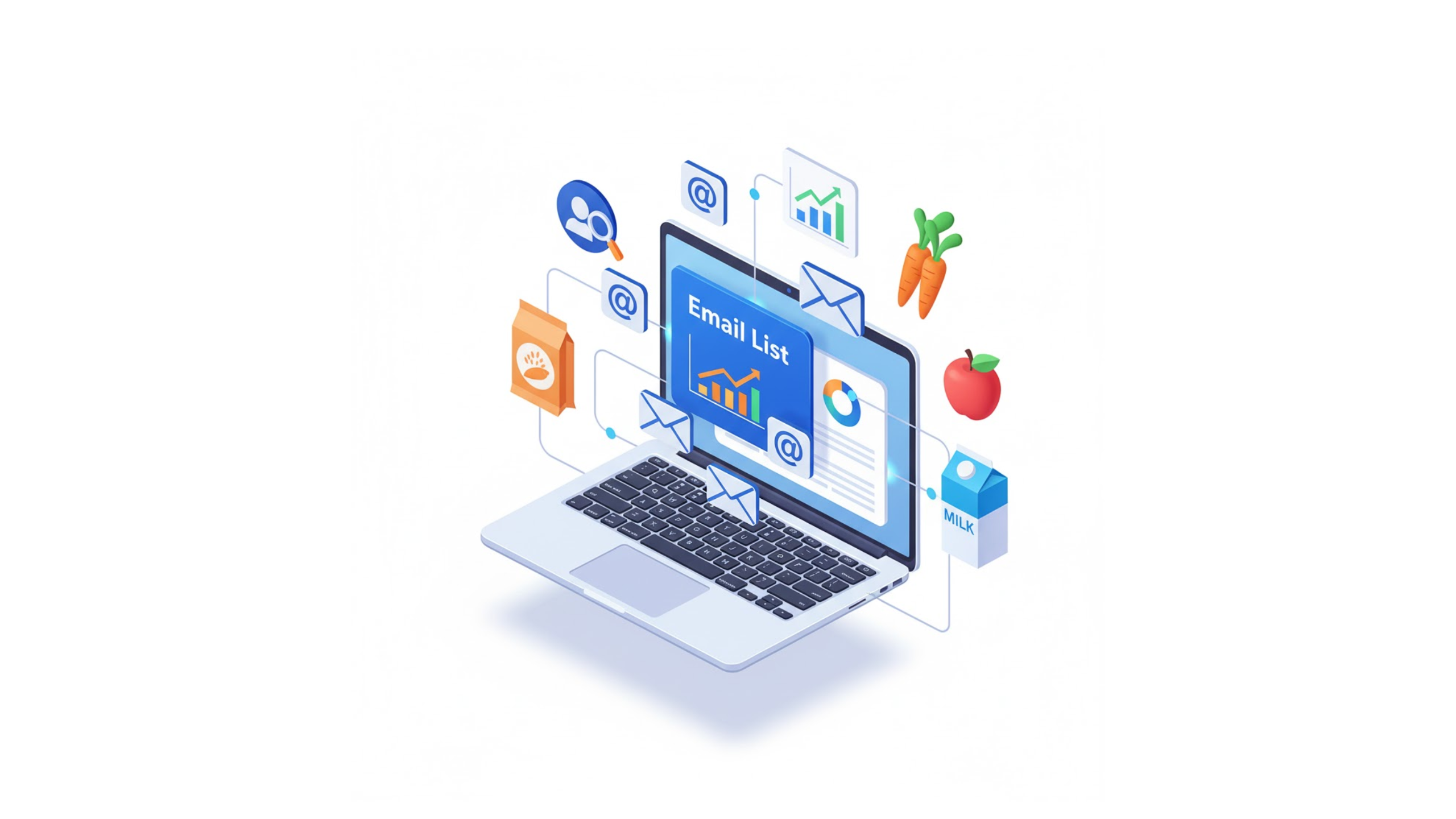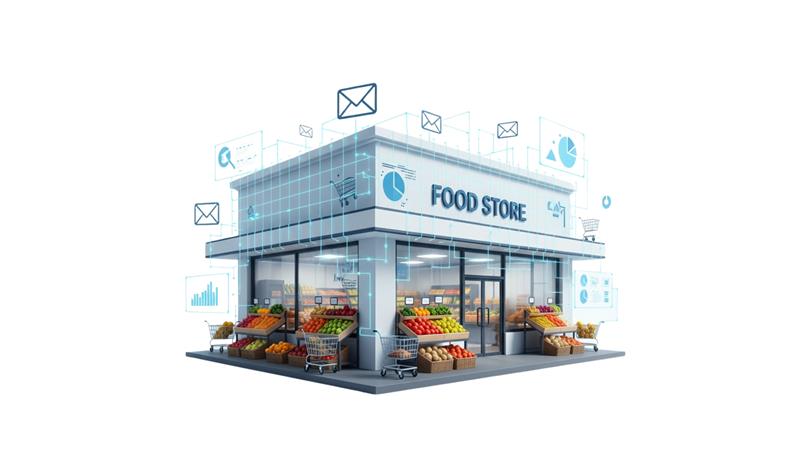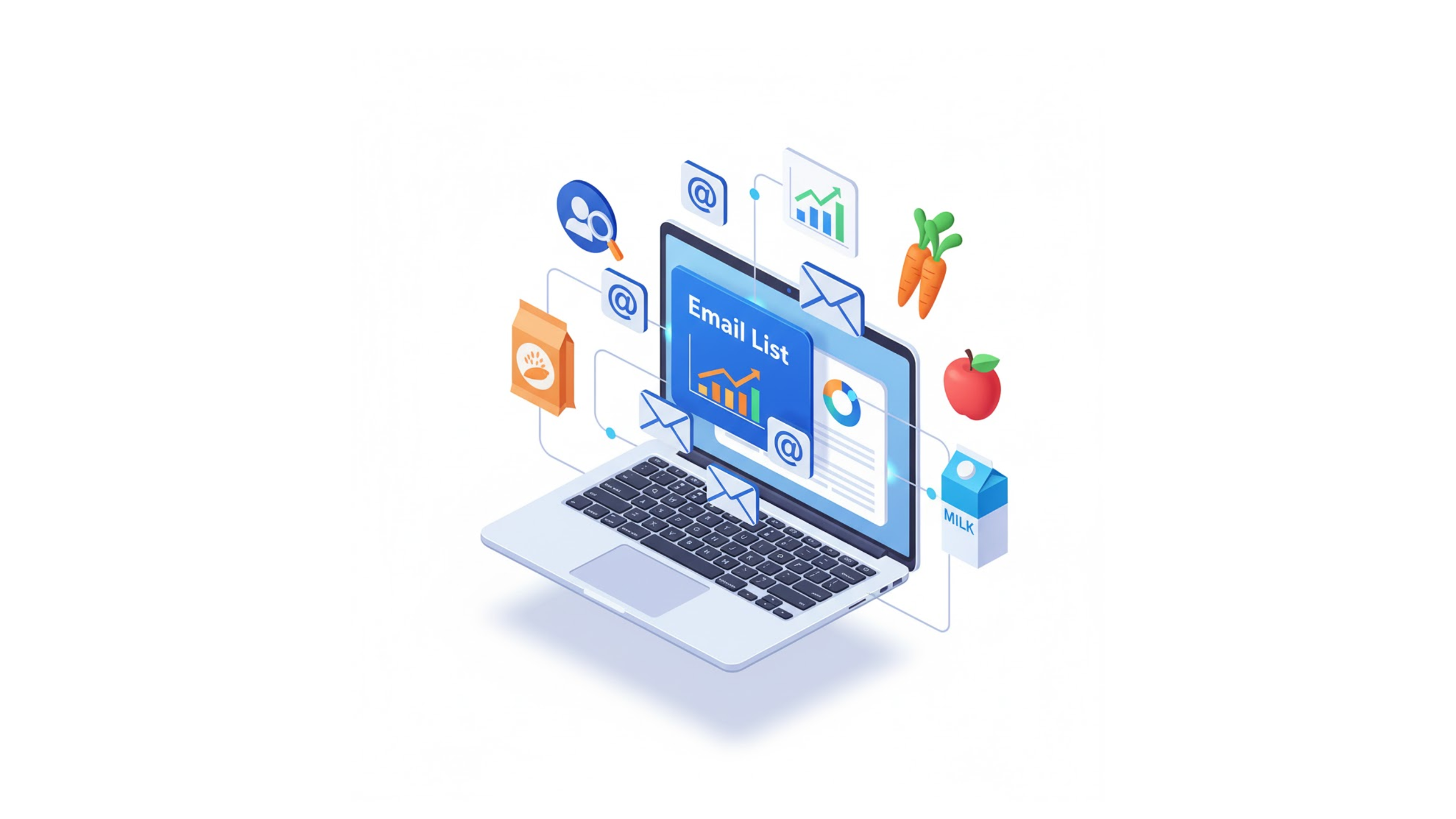5 Ways to Use a Food Processing Email List to Drive Leads

- Nancy Frick
In today’s competitive food industry, reaching the right audience with precision is key. A Food Processing Email List can be a game-changer for marketers, helping businesses generate high-quality leads and build meaningful connections. In this article, we explore five strategic ways to leverage a food processing email list to drive leads, boost conversions, and enhance your B2B marketing campaigns.
Why Use a Food Processing Email List for Your Marketing Campaigns
A Food Processing Email List offers unparalleled advantages for marketers aiming to target the food sector effectively. Here’s why it’s an essential tool:
Lead Generation Benefits : Generating leads in the food industry requires more than just broad outreach. With a curated food industry email list, marketers can connect with decision-makers, including manufacturers, suppliers, distributors, and importers.
This targeted approach ensures your campaigns reach professionals who are actively seeking solutions, leading to higher conversion rates.
Targeting the Right Audience : One of the primary advantages of a Food Processing Email List is precise targeting. Instead of wasting resources on unqualified contacts, businesses can focus on professionals who matter most. Whether promoting new machinery, ingredients, or software solutions for the food sector, targeted outreach ensures your message lands in front of decision-makers.
Personalization and Campaign Effectiveness : Personalized campaigns outperform generic outreach. A food industry email list provides details such as company size, role, and industry segment, enabling marketers to tailor messages. Personalization improves open rates, click-through rates, and overall campaign effectiveness.
How to Use a Food Processing Email List Effectively

Using a Food Processing Email List effectively requires strategy and attention to detail. Here are key practices to maximize results:
1. Segment and Target the Right Audience
How to use it:
-
Import your Food Processing Email List into your CRM or email marketing platform (like HubSpot, Mailchimp, or ActiveCampaign).
-
Create segments based on criteria such as:
-
Job title (e.g., Plant Manager, Procurement Head)
-
Company type (e.g., food manufacturer, packaging supplier)
-
Location or region
-
-
Send customized messages to each segment that address their specific needs.
Example:
Send machinery upgrade offers to manufacturers, and new ingredient announcements to food product developers.
2. Launch Product Promotions and Offers
How to use it:
-
Use the email list to send out targeted promotional campaigns.
-
Include:
-
A strong headline highlighting your offer (e.g., “Exclusive 15% Discount on Food Packaging Equipment”)
-
A clear CTA (e.g., “Book a Free Demo” or “Claim Offer Now”)
-
A short description of how your product solves a key problem.
-
Example:
If you sell processing machinery, email production managers with a limited-time deal and an easy booking link.
3. Share Educational and Industry Content
How to use it:
-
Create a monthly or quarterly newsletter using your email list.
-
Share:
-
Food industry trends
-
Case studies
-
Regulatory updates
-
Whitepapers or eBooks
-
-
Include CTAs that drive readers to your website or product pages.
Example:
Send an email titled “5 Emerging Trends in Food Automation” with a link to download your free industry report.
4. Run Automated Drip Campaigns to Nurture Leads
How to use it:
-
Use marketing automation software to create a drip campaign (a series of pre-scheduled emails).
-
Sequence your emails like this:
-
Introduction to your brand
-
Educational content (e.g., case study or blog)
-
Product offer or free demo invitation
-
-
Automate the workflow so that each new contact receives these emails in sequence over several days/weeks.
Example:
When someone downloads your eBook, they automatically enter a 3-email sequence that educates and then pitches your solution.
5. Re-Engage Inactive or Dormant Contacts
How to use it:
-
Identify contacts in your email list who haven’t opened emails or interacted in the last 3–6 months.
-
Create a re-engagement campaign with:
-
A friendly subject line (e.g., “We Miss You – Here’s What’s New in Food Processing!”)
-
An update about your latest offerings or success stories
-
A simple incentive (like a webinar invite or discount).
-
Example:
Send a “We’ve Grown!” email highlighting new clients or achievements to spark renewed interest.
Combine these tactics with analytics — track open rates, clicks, and conversions — to refine your campaigns and improve performance over time.
Examples of Effective Campaigns
- Launching a new food processing machine with a targeted email campaign to manufacturers.
- Offering discounts on packaging solutions to distributors and wholesalers.
- Sharing industry trend reports with food sector professionals to establish thought leadership.
Why Choose eSalesClub for the Food Processing Email List
Not all email lists are created equal. eSalesClub stands out for several reasons:
Credibility and Reliability : eSalesClub offers verified and accurate food sector marketing leads that marketers can trust. Their lists are regularly updated to remove invalid or outdated contacts.
Data Accuracy and Verification : Accuracy matters. With eSalesClub, you can be confident your food manufacturing contacts are current, helping reduce bounce rates and improving ROI.
Easy Integration with CRM and Marketing Tools : Seamless integration with CRMs and email marketing platforms allows businesses to use their Food Processing Email List effortlessly, streamlining campaign management.
Who Uses Food Processing Email Lists
A Food Processing Email List is valuable to a wide range of professionals in the food industry:
- B2B marketers in the food sector seeking qualified leads.
- Food manufacturers and suppliers looking to expand their client base.
- Distributors and wholesalers aiming to reach new buyers.
- Exporters and importers trying to identify international business opportunities.
Benefits of Using a Food Processing Email List
A Food Processing Email List offers several advantages that directly impact your marketing success:
Improved Lead Generation and ROI : Targeted outreach leads to higher-quality leads, translating into better ROI. Businesses can focus on prospects more likely to convert, saving time and resources.
Targeted Marketing and Higher Conversion : With access to food sector marketing leads, marketers can segment campaigns and send relevant content, resulting in higher engagement and conversion rates.
Time-Saving and Cost-Effective : Rather than manually researching contacts, a food industry email list provides ready-to-use data, saving valuable time and reducing costs.
Insights into Industry Trends : A reliable Food Processing Email List can also reveal trends, popular products, and emerging players in the food industry, informing strategic decisions.
Final Thought
A Food Processing Email List is more than just a collection of contacts—it’s a strategic asset for businesses aiming to generate qualified leads and maximize marketing ROI.
By targeting the right audience, personalizing campaigns, and leveraging verified data from sources like eSalesClub, marketers can achieve measurable success in the competitive food sector.
Start Driving Better Leads Today
Explore eSalesClub’s verified Food Processing Email List and unlock the potential of your marketing campaigns
Get a Free Sample!FAQs
A Food Processing Email List is a database of verified professionals and decision-makers in the food industry. It helps businesses reach targeted prospects—such as manufacturers, suppliers, and distributors—to generate high-quality B2B leads efficiently.
Using a Food Processing Email List ensures precision targeting, reduces wasted marketing spend, and connects your campaigns with verified food industry professionals who are most likely to convert.
Reliable sources like eSalesClub provide up-to-date and verified food industry email lists for marketing campaigns.
You can boost performance by segmenting contacts, personalizing messages, and using automation tools. This approach increases open rates, engagement, and conversion rates.
By eliminating invalid or irrelevant contacts, verified lists ensure your emails reach only real decision-makers—saving time and reducing wasted ad spend.
A Food Processing Email List is industry-specific and includes verified contacts within the food production, packaging, and distribution sectors, ensuring your campaigns target only relevant professionals.
Targeted leads enable precise outreach, save time and costs, improve ROI, and ensure your messages reach genuine decision-makers in the food processing industry.
Identify your target audience—such as meat processors, beverage manufacturers, or packaging companies—and select a list segmented by that niche.
Yes, verified lists include exporters and importers, enabling international outreach.
Yes, most verified lists, including eSalesClub’s, integrate easily with CRMs and email marketing tools.
A food industry email list covers general contacts, while B2B food processing leads target specific decision-makers for business opportunities.
Yes. Smaller companies benefit greatly from targeted lists as they allow focused outreach without requiring a large marketing budget.
Yes, targeted email campaigns reduce wasted resources and yield higher conversion rates.
Absolutely. A verified and regularly updated email list becomes a long-term marketing asset that continuously generates qualified leads and supports ongoing growth.
Segmentation based on company size, role, or location significantly improves engagement.
Always ensure your campaigns comply with data privacy laws such as GDPR, CAN-SPAM, and CASL by using opt-in and verified contact databases.
Yes. It’s effective for both purposes—building awareness of your brand while simultaneously generating leads for your sales pipeline.
Businesses such as food manufacturers, ingredient suppliers, packaging companies, distributors, and import/export firms gain the most value by using these lists to expand their B2B reach.






